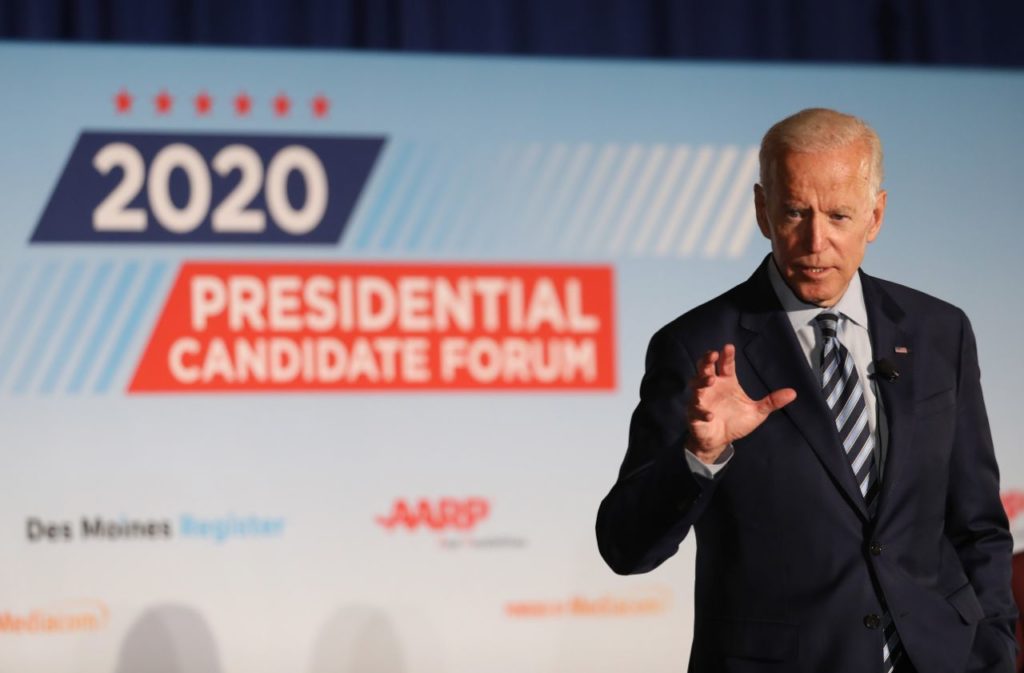The Social Security trust fund will be depleted in about 15 years without action, according to the 2019 Trustees report. Deep cuts in benefits for current and future retirees would follow.
Social Security’s cost has exceeded its non-interest income since 2010, the report says. Funding this program is a perennial political dance in D.C. And given that older Americans have higher voter turnout than any other age group (71% of Americans over 65 voted in the 2016 presidential election, according to U.S. Census Bureau data) – the Democrats running for president are beginning to put forth their ideas for shoring up Social Security.
The total cost of the program in 2018 was $1 trillion. Democrats pretty much all want more money to be put into the Social Security trust fund and most say the program should expand.
How to pay for it
The Social Security payroll tax rate is currently 6.2% for the employer and 6.2% for the employee. But as Democrats often note, the taxes only apply to yearly wages up to $132,900.

There are a few plans to change that while raising money to shore up the program.
Sen. Bernie Sanders introduced a bill this year to apply Social Security taxes to all income (both wages and investment income) above $250,000. “It is incomprehensible that while Social Security is in financial crisis, we are allowing millionaires to stop paying in to the program,” Sanders said at the time. The bill is co-sponsored by fellow candidates Cory Booker, Kirsten Gillibrand, and Kamala Harris.
Sen. Elizabeth Warren’s plan is to “gradually eliminate the cap on income” (apparently for all wages over $132,900). Sen. Michael Bennet has also discussed “lifting the payroll cap.”
In the House of Representatives, a plan known as Social Security 2100 would allow wages above $400,000 to be taxed for Social Security. The bill would also gradually phase in a tax increase to 7.4% for both workers and employers by 2043. Former Rep. Beto O’Rourke is on board with the plan and his campaign notes that he co-sponsored a previous version of the bill when he was in Congress.
Other 2020 candidates in the House have also signed on to this plan, including Rep. Tulsi Gabbard, Rep. Seth Moulton, and Rep. Tim Ryan.
Former Vice President Joe Biden has voiced support for the idea of taxing wages above $400,000 with a “donut hole” for people who make between $132,900 and $400,000.
Mayor Pete Buttigieg has yet another approach: raise the cap to $250,000. “If we just elevated the cap on the level of income eligible for payroll taxes from $135,000 to the $250,000 neighborhood, that would go a long way towards sustainability,” he recently said.
The various plans would impact a small piece of the larger workforce. According to a recent analysis by the Center for Economic Policy Research, 6.2% of workers would be impacted by raising the current cap of $132,900. If earnings on $250,000 were taxed, it would be 1.8% of workers who pay more. If the level is $400,000, 1% would be affected.
The Republicans are, by and large, not fans of any of these ideas. Reps. Kevin Brady (R-Texas) and Tom Reed (R-NY) responded to the Social Security 2100 plan with an op-ed entitled “The Democratic plan for smaller paychecks”

Promises of new benefits
With the new revenue that would come with raising salary limits, many candidates are promising expansion of Social Security.
The Bernie Sanders plan would increase the amount of benefits for all Social Security recipients, with a special focus on helping low-income seniors. Sanders and Warren are the co-chairs of the “Expand Social Security Caucus” in the Senate.


